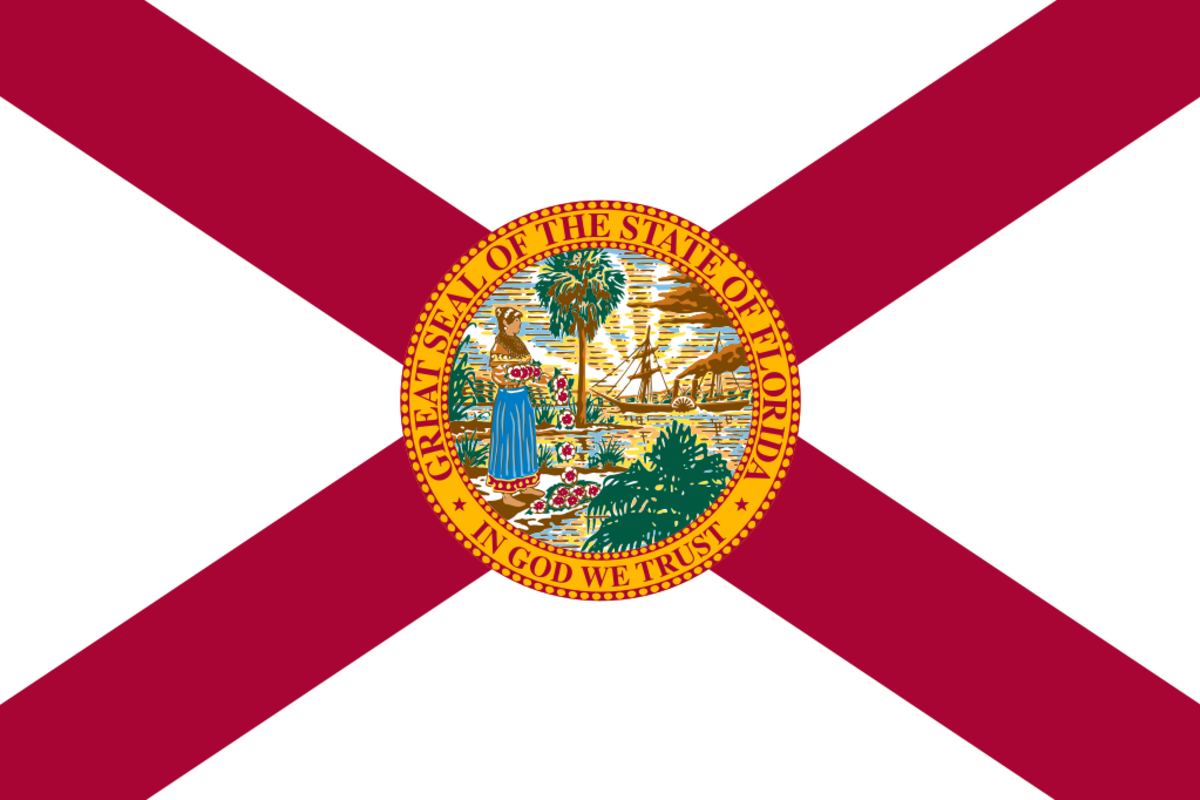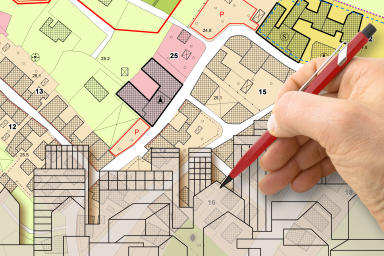Florida Real Estate and Property Laws

Florida is home to some of the fastest-growing real estate markets in the country. As a result, in some cases, state laws regarding the purchase, renovation, renting, or sale of real estate have been challenged or amended. Starting in September of 2022, for example, contractors in Florida joined an ongoing legal battle regarding a new Florida property-insurance law. The contractors and their representatives sought to appeal against a law that restricted attorney fees in disputes regarding property claims.
Florida Homestead Laws
Because most property owners in Florida are homeowners, it is important to be aware of Florida homestead law. To assist families across the state, Florida has enacted various homestead laws which provide certain legal and tax benefits for homeowners. To ensure you are eligible for these benefits, review the following requirements:
What is considered a homestead in Florida?
In Florida, real property that is the owner’s primary residence is considered a homestead. To qualify for homestead protections, the owner and their family should make regular use of the property. Homestead property can be located in either the city or county, and there is no restriction on total square footage of the physical residence. However, homesteads cannot exceed more than one-half (½) of contiguous land in a municipality or one hundred and sixty (160) acres in an unincorporated county.
Do I get a tax break on my homestead in Florida?
The state of Florida does offer tax exemptions on homesteads. Owners of permanent residential property may be eligible to receive an exemption worth up to $50,000 on their property’s taxable value. The first $25,000 of the total tax exemption can be applied to all taxing authorities (excluding school taxes). In order to receive homestead tax exemptions, you must meet the following criteria:
Be the owner or have a beneficial interest in the property
Have proof of Florida citizenship
Currently occupy the property
Use the property as a primary residence
Additionally, you could be eligible for other property tax exemptions if you are active-duty military, a veteran, or over the age of 65.
Florida Property Line and Fence Laws
Establishing privacy in one’s home is among the top priorities for every homeowner. Many homeowners choose to build privacy or boundary fences to mark off their property and ensure they and their families have privacy. Every state has its own rules and regulations regarding the building of fencing on real property. Before you build or remove a fence bordering your property, it is best to learn more about Florida’s requirements for fencing according to state law.
Fencing laws
Florida does not require landowners to build and maintain fences around their property. If you do decide to build a fence, however, you must do so within the bounds of your property without encroaching on adjoining properties.
Livestock
Florida law does not require livestock owners to build an enclosure for their animals. However, if your livestock strays from your property and causes damage to your neighbor’s property or obstructs public roads, you could face fines or legal action. To avoid this risk, building a fence or a secure enclosure for your livestock may be in your best interest.
Boundary Fences
Who owns a fence that is erected between two (2) properties? If the fence already exists before two (2) landowners purchase their adjoining properties, the fence is considered joint property, and the two landowners will be required to work together to repair and maintain the fence. However, if there is no existing fence, neither landowner is obligated to build one. If you would like to build a boundary fence on your property, you have the right to do so. However, you should know that your adjoining neighbor has no legal obligation to build a boundary fence.
Spite fences
Fences that are constructed to act as a nuisance are sometimes known as “spite fences.” These fences may cause a nuisance in the form of obstruction of roadways or a neighbor’s view. If these fences do not define boundaries or prevent trespass, they may be considered a nuisance and could result in legal action taken by neighbors.
Tree trimming laws
If your neighbor’s trees have started to overhang on your property, it is important to familiarize yourself with state law before you bring out the trimmers. Since the tree is technically the property of your neighbor, you are only allowed to trim the branches back to the property line. Liability for any damages caused by falling branches depends on the tree’s health. For example, if your neighbor has neglected to upkeep their tree and allowed the branches to die, they could be considered liable for any damage to your property.
Florida Adverse Possession Laws
Adverse possession laws (sometimes called “squatters’ rights”) are a legal means of acquiring unoccupied property through trespassing. The intention behind these laws is to transfer ownership of abandoned properties to parties who will actively use and improve them. Adverse possession claims generally do not deal with individuals who have “color of title” (in other words, situations in which an individual has reason to believe they own the property or a portion of the property). In order to gain adverse possession of a property in the state of Florida without “color of title,” an individual must meet these requirements:
Hostile claim: the individual must either demonstrate awareness of their trespassing, provide proof that they were unaware the land was privately owned or make a case that they mistakenly believed they were living legally on the property (“color of title”).
Exclusive possession: the individual cannot share occupancy of the property with others
Continuous possession: the individual must occupy the property in question for at least seven years.
Actual possession: the individual must live on and care for the property; in most cases, this means the property is the individual’s primary residence, and they actively make improvements.
Open and notorious possession: the individual’s residency on the property must not be a secret.
Residing on private property: government lands at both the federal and state level are exempt from adverse possession laws.
While these requirements are relatively straightforward, actually winning adverse possession of a property may be a complicated legal matter. Whether you are an individual seeking to gain property through adverse possession or you are looking to reclaim ownership of an occupied property, you will likely require a legal professional to review your case. Contact a Florida real estate attorney for the best chance of winning your adverse possession claim.
Florida Concealed Handgun Laws
According to Florida Statute §790.25(3), gun owners may not openly carry their weapons. However, a new law (House Bill 543) gives Florida citizens the right to concealed carry without a permit. “Concealed carry” means that the weapon must be concealed under clothing or within a bag at an angle that is not easily visible to others. There are some exceptions to these requirements, however; the following situations are examples of instances in which a Florida citizen may carry a gun without concealing it:
At work in gun manufacturing/repair
Hunting (or traveling to and from hunting)
Firing at target practice
Transporting an unloaded gun from the place of purchase to your home
House Bill 543 became effective July 1, 2023. Until that date, a license was still required for a person to carry a concealed weapon. Additionally, to carry a concealed weapon in the state of Florida, it is required the gun is lawfully owned (meaning the gun owner is a United States citizen, at least 21 years of age, and has no felony or domestic abuse convictions).
Florida Lease and Rental Agreement Laws
Are you aware of your rights as a tenant or a landlord? The growing rental housing market in Florida cities such as Miami, Fort Lauderdale, and Sarasota has resulted in thousands of leasing agreements. To establish the rights and responsibilities of both parties, Florida’s leasing and rental agreement laws define what the roles of both tenant and landlord entail. When issues arise, these laws detail the processes each party can take to address any problems and to avoid uncertainty and confusion.
Landlord’s Responsibilities
Landlords have certain responsibilities to their tenants according to Florida law. Though Florida does not require landlords to obtain a rental license, Florida landlords must:
Abide by all housing and health codes
Maintain the property (including plumbing, roofs, floors, windows, etc.)
Maintain safe living conditions (for example, eliminating pests, toxic mold, or functioning locks on doors and windows)
If a landlord fails to uphold these duties, their tenants may have the right to file a complaint or seek compensation if they are injured as a result of their landlord’s neglect.
Tenant’s Responsibilities
Similar to the landlord, the tenant of a rental property has rights and responsibilities of their own. For example, a Florida tenant must:
Abide by all housing and health codes
Operate all appliances, electrical outlets, and plumbing in a reasonable manner
Keep the premises reasonably clean and sanitary
Not unreasonably deny access to the property by their landlord
The landlord may have grounds for eviction if the tenant fails to occupy the rental property responsibly.
Deposit Requirements
Landlords are required to collect a damage deposit from their tenants to cover repairs made to the property when the tenant moves out. If the landlord intends to use the damage deposit for maintenance to the property, they must provide the tenant with a written notice of the total amount of the damage deposit they are claiming and an explanation for its use within thirty (30) days. If the landlord does not intend to use the tenant’s deposit, they must return it in full within fifteen (15) days of move-out.
Rent Requirements
Florida has no rent control, limit on late rent fees, or rent payment grace period laws. Whatever rent the tenant and landlord agree upon in the lease must be paid on the agreed date, or the landlord has the right to take action against the tenant. However, Florida does require all fees are clearly stipulated in the rental contract (meaning landlords cannot suddenly charge exorbitant late fees).
Illegal Retaliation
If there are hazardous conditions or malfunctioning appliances on a rental property, tenants have the right to ask their landlord to address these issues. Landlords must review these requests and act accordingly. However, landlords do not have the right to retaliate against their tenants for requesting reasonable repairs. Retaliation can come in the form of eviction, harassment, or raised rent.
Filing Complaints
There are clear avenues for tenants dealing with negligent or noncommunicative landlords. Tenants who wish to file a claim against a landlord can do so with the Florida Department of Agriculture and Consumer Services (FDACS) or seek action in court.
Notice of Noncompliance
If a Florida landlord has an issue with a tenant, they must first notify the tenant in writing. The tenant will then have seven (7) days to correct the problem or surrender the property to the landlord (depending on the degree of damage to the property). The exception to this process is late rent; this issue has its own set of proceedings.
Late Rent
If a tenant fails to pay rent, the landlord has the right to serve the tenant with a written notice. The notice should clearly specify that the tenant has three (3) days to pay rent or vacate the premises. At this point, if the tenant has not taken either of the above actions, the landlord has the right to begin the eviction process.
Exception to Late Rent Eviction
In some cases, a tenant may have the right to withhold rent until their landlord has addressed safety or maintenance concerns on the property. However, this can be a risky strategy that results in a legal battle. If your landlord fails to make a reasonable attempt to address issues on the property, you should first try filing a complaint or taking legal action.
Illegal Evictions
While a landlord does have the right to evict a tenant who fails to pay rent or causes significant damage to the property, they must abide by the process outlined in Florida’s state law. They cannot force their tenants to leave by shutting off utilities, changing the locks, or removing the tenant’s personal property from the premises.
Florida Law Concerning Real Estate Fraud
Unfortunately, escrow wire fraud, moving, loan-flipping, and rental scams are common in booming real estate markets like Florida and can cost victims a substantial amount of money. Real estate fraud, as defined in Florida’s State Statute 817.545, can result in felony charges, fines, or time in prison. If a real estate scammer is charged at the federal level, they could face even steeper fines and penalties.
Who Regulates Real Estate Laws in Florida?
Part of the Department of Business and Professional Regulation (DBPR), the Florida Real Estate Commission (“FREC”) educates and regulates real estate licensees throughout the State of Florida. FREC is the commission with whom the public or other licensees can file a complaint against a Florida real estate licensee. However, this government body does not handle civil issues and disputes. If you encounter problems pertaining to property and real estate, these disputes will be handled by the courts.
What Is the Statute of Limitations in Florida?
Statutes of limitations vary widely depending on the nature of the complaint. For example, the statute of limitations to reclaim real property in Florida is seven years from the commencement of the action. On the other hand, actions for trespass to real property or actions founded on improvements to real property must be filed within five years. If you are unsure of the statute of limitations for your complaint, consult with an experienced Florida real estate attorney.
Expertise.com StaffAuthor
Step into the world of Expertise.com, your go-to hub for credible insights. We don't take accuracy lightly around here. Our squad of expert reviewers, each a maestro in their field, has given the green light to every single article you'll find. From rigorous fact-checking to meticulous evaluations of service providers, we've got it all covered. So feel free to dive in and explore. The information you'll uncover has been stamped with the seal of approval by our top-notch experts.

Michele Diglio-BenkiranReviewer
Michele Diglio-Benkiran has been practicing law for over 25 years. She is the founder of Legal Counsel, P.A. She practices real estate and business law in both transactional and litigation matters. Visit: www.legalcounselpa.com


![Much Does a Real Estate Attorney Cost? [2023]](https://images.ctfassets.net/k00sbju4hbzq/jeHWDk6nRgicyElptqWc9/474a20dc2dd2f4a8ddcd39a477001e61/Depositphotos_162710700_XL.jpg?fit=fill&w=384&q=75)

